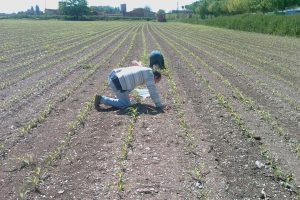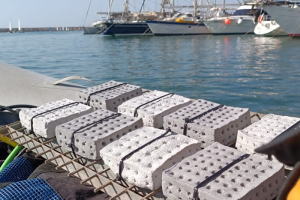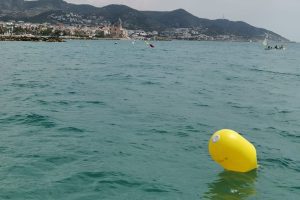- All
- Agricultura
- agrotech (antiguo)
- Agrotech (antiguo)
- Agua
- Alimentación, agricultura y medio marino
- Automoción
- Big Data
- Biomateriales
- blockchain
- Ciberseguridad
- Economía Circular
- Enertronic
- Enertrònica
- Food, agriculture and the marine environment
- Green Car
- IAQ
- ict
- Indoor air quality
- Industria 4.0
- Industry
- Inteligencia Artificial
- Internet of Things
- Materiales de frontera
- microxips
- Mobile Technologies
- Open innovation
- Óptica y fotónica
- Qualitat de l’aire interior (IAQ)
- Realidad Virtual y Realidad Aumentada
- Robótica y Visión
- Sector Salut
- Smart City
- Smart Grids
- Technology
- Tecnologías de Agrotech
- Tecnologías de Infraestructuras
- Tecnologías de la Energía
- Tecnologías de la Producción
- Tecnologías de la Química
- Tecnologías de la Salud
- Tecnologías de la Transformación Digital
- Tecnologías de Logística y Movilidad
- Tecnologías de los Materiales
- Tecnologías de Urbanismo y Sostenibilidad
- Tecnologías del Medio Ambiente
- Tecnologías Químicas y de la Alimentación
- Water
- X
- The organisation CARBOPESCA, together with the research group Development Center of Remote Acquisition and Information Processing Systems (SARTI) and the Efficient and Robust Integrated Circuits and Systems (EFRICS) group, at the UPC, are leading the iPROPEZESPADA project, an initiative aimed at optimising the capture and management of swordfish fishing using artificial intelligence.
- The company Natural Machines and the Heat and Mass Transfer Technological Centre (CTTC-UPC) at the UPC have completed the EFICIENT3D project, during which a low-energy cooking system was developed by integrating advanced heat transfer technologies into the 3D food printer, Foodini, commercialised by Natural Machines.
- RootBot aims to develop and demonstrate an autonomous robotic electromagnetic detection system equipped with ground-penetrating radar (GPR) and advanced navigation technologies to map the root systems of fruit trees and soil moisture. This project seeks to optimize agricultural resource management, particularly water, and contribute to more sustainable farming through the use of innovative technological tools.
- The Group of Environmental Engineering and Microbiology (GEMMA) at UPC is leading the PROALGAE project, aimed at producing new alternative proteins from biomass derived from microalgae and cyanobacteria cultivated using by-products from the agri-food industry. These alternative proteins aim to provide a sustainable ingredient to meet the growing global demand for protein, applicable in the development of food and feed.
- The Remote Sensing Acquisition Systems Development Centre (SARTI UPC) has developed a new model of buoys to record ocean currents and temperatures as part of the European project Multi-Sensor Extra Light Oceanography Apparatus (MELOA). This is a DRIFTER, or a low-cost, low-power surface drifting buoy, which is easy to use, impact-resistant, multi-purpose, multi-sensorial, and very lightweight. It is designed to be used in all aquatic environments, from the deep sea to inland waters, including coastal areas, river plumes, and wave-breaking zones.
- The research and innovation laboratory at the Barcelona School of Informatics (inLab FIB) of the Universitat Politècnica de Catalunya - BarcelonaTech (UPC) is taking part, along with the distribution company Assolim, in the design of a test of concept to create optimised routes for each vehicle for transport on demand.
- A team of researchers from the ISI group at the UPC is developing technology to be able to monitor animals’ cardiovascular parameters in a non-invasive way. This tool is designed to facilitate the work of vets and professionals who look after animals, as it can be used to measure vital signs in as little time as possible and provides more information than current electrocardiogram systems.
- CD6 researchers at the UPC participate in a project to design and construct a proof of concept of a system that has laser technology and sensors to detect and map the underwater environment.
- Cities are responsible for 80% of global energy consumption, 70% of total waste generation and 60% of greenhouse gas emissions of the planet. For this reason, measures need to be taken to transform cities into more sustainable, circular ecosystems.
- A team of researchers from the Department of Agri-Food Engineering and Biotechnology of the Barcelona School of Agri-Food and Biosystems Engineering (EEABB), associated with the Specific Research Centre for Agri-Food Technology (Agrotech UPC), and the Design and Assessment group of Broadband Networks and Services (BAMPLA) at the Castelldefels School of Telecommunications and Aerospace Engineering (EETAC), Universitat Politècnica de Catalunya - BarcelonaTech (UPC), are participating in the development of a monitoring and decision support system for weed management in crops.
- The Technological Development Centre for Remote Acquisition and Data Processing Systems (SARTI) at the Universitat Politècnica de Catalunya - BarcelonaTech (UPC) participates in the SEASLAG project, which contributes to measurement and test systems to assess the characteristics of the biomaterials developed in the project, to regenerate marine ecosystems. This material incorporates byproducts from the metal and agrifood industries.
- A team of UPC researchers is working to develop a solution to standardise and improve quality control in fermentation processes in the Agrotech area.
- Combining agricultural activity and the production of solar energy by means of photovoltaic panels is the aim of SYMBIOSYST, a project promoted by a consortium of 16 European partners including the UPC. As part of this project, technological tools will be developed to contribute to generating clean energy for the agricultural sector in Europe.
- The production of biogas through anaerobic digestion has been increasing exponentially in Europe in recent years. This is because it can be produced locally and has a clear positive effect on waste recycling, the generation of clean energy, sustainable development or climate action. In this context, the FertiLab project was launched, with the participation of researchers from the Department of Agri Food Engineering and Biotechnology (DEAB) of the UPC.
- The aim of the Douglas project is to improve safety in the bathing area of the beaches of Catalonia and the Balearic Islands, through the implementation of a coastal signalling system through IoT technology.
- The AI4WATER project proposes optimizing the use of available water resources, to mitigate the effects of increasing water scarcity in agriculture and to improve food safety through the creation of a digital twin (DT) in an irrigation sector of the Segarra-Garrigues region (Lleida). Participants in the project are the Specific Research Centre in Communication and Detection of the UPC (CommSensLab-UPC), the Center for Industrial Equipment Design (CDEI) and the Geophysics and Earthquake Engineering (GiES) group of the UPC.















